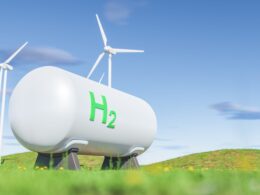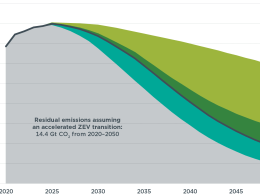The United States has ordered a halt to construction on Equinor’s $5 billion Empire Wind project off the coast of New York, marking a significant setback for the offshore wind industry and underscoring the Trump administration’s increasingly hardline stance against renewable energy development.
US Interior Secretary Doug Burgum instructed the Norwegian energy giant to “immediately halt all construction activities”, citing what he described as a flawed and hastily conducted permitting process under the Biden administration. The Empire Wind project, with an expected capacity of 810 megawatts, was approved in late 2023 and had begun construction last year.
The decision adds to mounting uncertainty in the US offshore wind sector, which has already seen major developers such as Shell and TotalEnergies slow or withdraw from key projects in response to policy reversals and economic pressures.
Equinor responded by stating it would “engage” with the Interior Department to better understand the concerns raised over the project’s permits. The Empire Wind development was set to create an estimated 1,000 jobs and become the largest offshore wind farm serving New York City.
The move follows President Trump’s executive order in January to pause all new offshore wind leasing and permitting, and to review already approved projects. The administration’s broader rollback of clean energy initiatives has raised alarm among developers and policymakers alike.
New York Governor Kathy Hochul condemned the decision as federal overreach and pledged to challenge it. “I will not allow this federal over-reach to stand,” she said. The state, which aims to source 70% of its electricity from renewables by 2030, relies heavily on offshore wind to meet its climate goals.
Industry experts have warned that more than 90% of the US’s planned offshore wind capacity—over 60 gigawatts—could now be in jeopardy. Consultancy Rystad Energy labelled the risk as “serious”, while the Oceantic Network estimates that over $40 billion has already been invested in the sector.
Jason Grumet, CEO of the American Clean Power Association, said the government’s decision could have far-reaching consequences. “Doubling back to reconsider permits after projects are under construction sends a chilling signal to all energy investment,” he said. “These political reversals are bad policy, whether applied to pipelines or wind farms.”
Analysts also caution that the move threatens the reliability of the US electricity grid, which is under increasing strain due to rising energy demand from domestic manufacturing and the AI industry.
The federal halt not only places the Empire Wind project in limbo but also raises broader concerns over the United States’ credibility as a stable destination for energy infrastructure investment.





















